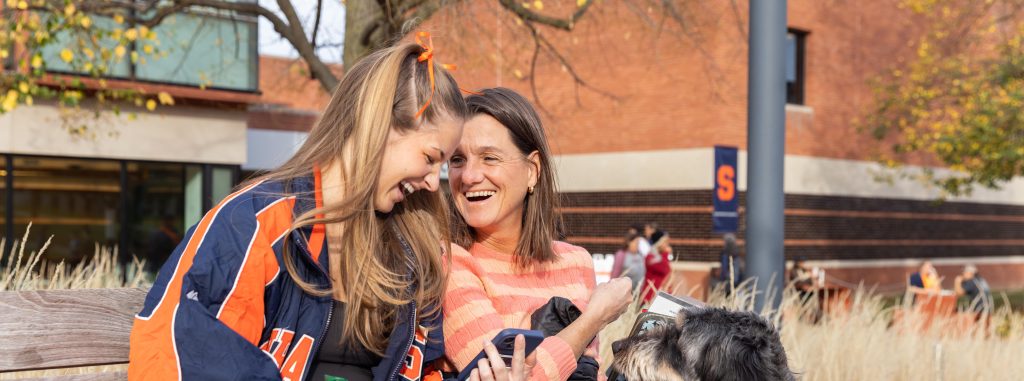
While you have been a very involved family for their experience up to now, you won’t be there to help them with the day-to-day business of being in college. Here are some things you can help with.
You don’t want to do daily wake-up calls, and they will need to
understand how to best schedule their time outside of classes. Remind them to allocate time for meals, sleep, hygiene, studying, exercise, and fun in their weekly plan. Without someone to remind them, it’s easy to lose track of time when they have such freedom.
There will be good and not-so good days. Managing stress through healthy habits like adequate sleep, nutritious eating and regular exercise can have a significant impact. Taking breaks and spending time with others is also important. Ensure they know where to find resources for help, whether it’s a tutor or mental health counseling.
Remind them that Syracuse University offers various health and wellness resources, including mental health counseling, health care and access to fitness centers and recreation programs. They will need to make appointments on their own. If they haven’t done this before, encourage them to start scheduling appointments as soon as possible.
Encourage them to introduce themselves to faculty members, utilize office hours, and seek academic help as soon as they realize they may need it. The sooner they reach out, the better the result.
How do these privileges shape your perspective and interactions with others? Encourage them to develop their own ideas and opinions and be willing and able to discuss them with other people–some of whom will have very different ideas and opinions.
Some students talk with (or text with) their family daily, but some don’t. How will you manage the distance and the frequency of communication?
Making smart and safe choices about alcohol and drug use can impact many areas of their life. If they choose not to use, there are plenty of people who don’t and they will find their people if they make the effort.
While you are at it, talk about affirmative consent, personal safety and being an empowered bystander.
You may be surprised about how impactful this can be.
